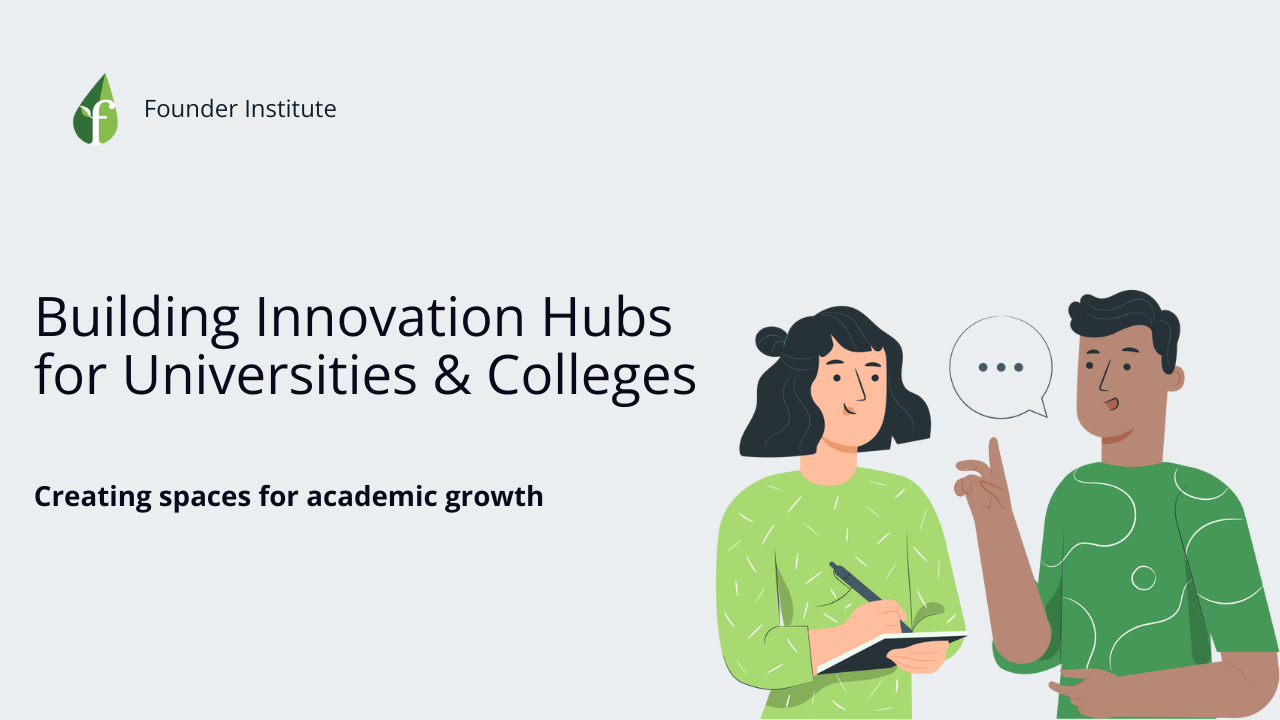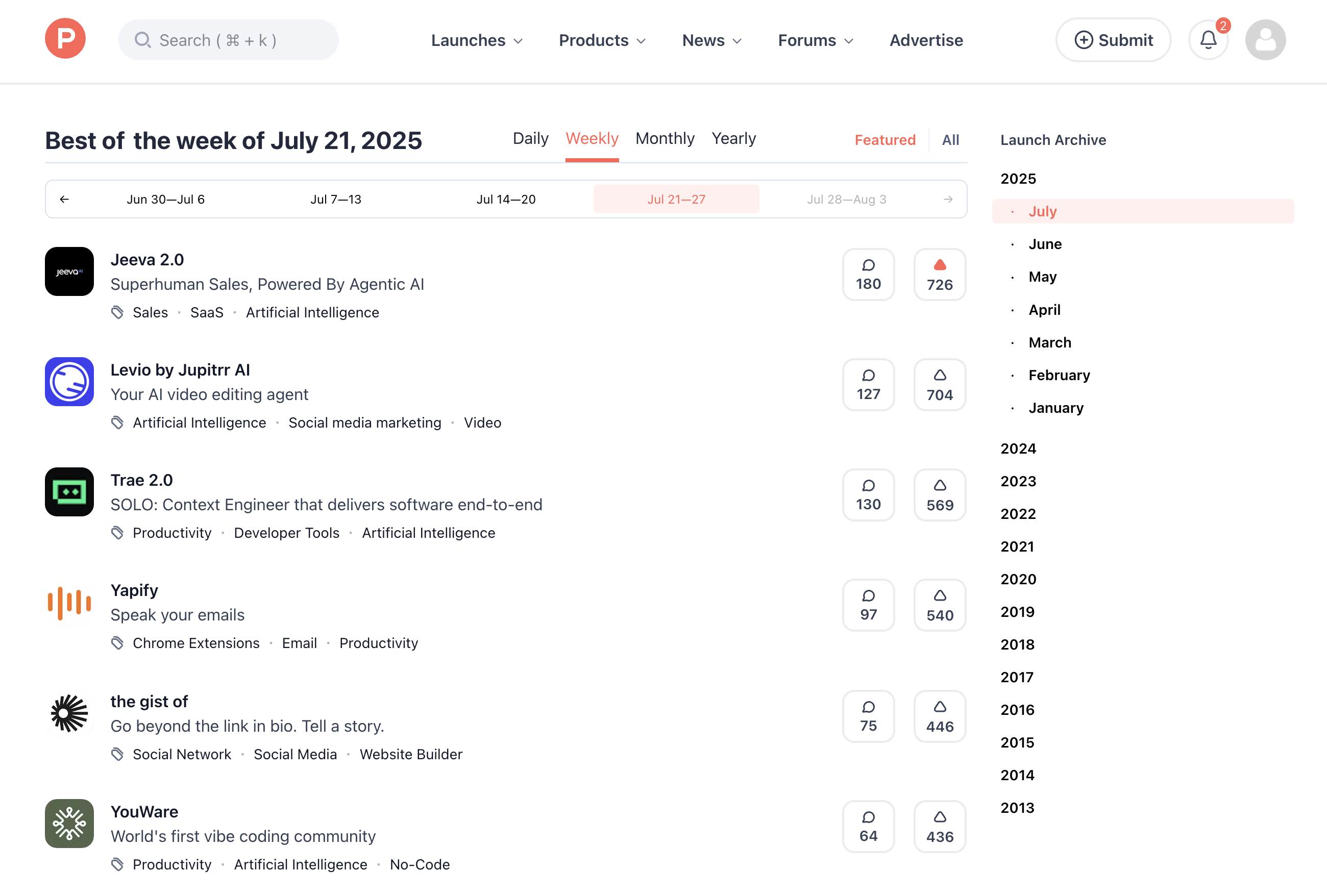
Innovation hubs aren’t buildings—they’re sandboxes that translate learning into market outcomes. This is how Student Entrepreneurship Programs were defined in our recent webinar with our innovation Partners; Daniel Francavilla (Founder at The Good Growth Company), Bianca Diosdado (Founder & CEO at ITRADE Innovations), and the Associate Director of Entrepreneurship at YSpace, York University, Nafis Ahmed.
On this blog we will share some of the most prominent themes to equip you with the best practices on launching innovation hubs for universities and colleges.
Teach Entrepreneurship by Changing the Environment
To make entrepreneurship real, take students out of the usual classroom and into innovation spaces, events, and hands‑on settings. Use experiential work—labs, pitches, and real customer discovery—so learning comes from doing, not just reporting.
“if you're going to build it within an academic setting, you actually have to help take the students out of the academic setting.” — Nafis, Associate Director of Entrepreneurship, YSpace (York University)
Apprenticeships Bridge Classroom and Market (and Attract Funding)
Technology is moving so fast that university curricula often lag behind what employers need (some programs refresh only every few years). The speakers argue the fix is tight alignment with industry and hands‑on learning: apprenticeships, on‑the‑job training, placements, and use of university labs. These experiences build practical skills and the ability to learn, unlearn, and relearn—now essential as market needs shift every 3–6 months.
They both recommends partnering across nonprofits, colleges, and companies, and tailoring programs to current demand rather than last year’s plan. Cost doesn’t have to be a blocker: training reimbursement grants can cover up to 75% of salaries for up to six months, and in some cases early hires can be subsidized even more (sometimes up to 100%). Curating the match and coaching both startups and students keeps the process simple so founders can focus on building while students gain real‑world skills.
Watch the full event here
Measure What Matters: Skills and Placements, Not Startup Counts
Instead of judging a university innovation hub by how many students become founders, the speakers say success should be about upskilling students and placing them in startups. Pushing “student‑to‑startup conversion” as the main goal can hurt the learning journey; many students should first work inside startups, build skills, and then decide if and when to launch their own. As shared from Nafis Ahmed, Associate Director of Entrepreneurship at YSpace, York University, this looks like an active placement path for students who want startup experience, plus targeted programs for those already at the startup stage to help them grow. This shift sets clearer expectations and helps students gain the practical abilities that the ecosystem needs.
Cross‑sector collaboration & cutting bureaucracy (it’s “almost no choice”)
Universities, government agencies, and companies need to collaborate more and have real conversations to launch useful programs faster. Bureaucratic steps and paperwork slow things down, but the speakers say the last year has brought more flexibility and openness—because tech and markets are moving too fast to wait. The direction is positive: adopt tools that make admin smoother, support intrapreneurial employees, and keep partners at the table so ideas can move from talk to action.
“there just needs to have much more collaboration across the board and and having real conversations… over the last year, I have noticed that it's becoming a lot more easy for these government agencies and educational institutions to have more flexibility and be more open to new ideas simply because there's almost no choice. Technology is just moving so fast.”
— Bianca, Founder & CEO, ITRADE STEM
Sector priorities & the rise of AI (plus the value of generalists)
The speakers say every industry is changing, and AI will be everywhere—so universities shouldn’t treat it as a niche. Instead, pick a few priority sectors that match local strengths and partner needs, then go deep (examples mentioned include healthcare, agri‑food, advanced manufacturing, automotive, and smart cities). Alongside this, value generalists who see the big picture and can bring an AI/cyber mindset into different functions.
“I believe AI is eventually going to become a commodity, right? … It's almost like AI is the new cloud. Everyone is going to be on the cloud, right?”
— Nafis, Associate Director of Entrepreneurship at YSpace (York University)
Normalize “failing forward,” avoid coddling, and pivot quickly
A culture in which failure is encouraged as part of learning was advocated. It was suggested that visible, low‑cost experiments be normalized and that over‑protection of ideas or entrepreneurs be avoided. The goal was described as failing, learning, and moving on quickly rather than shielding teams from necessary feedback.
“If I could boil that answer into one thing, it's creating an environment where we encourage failure.” — Nafis, York University
Measure What Matters (and Select for Founders, Not Ideas)
Vanity metrics—like counting how many students launched startups—distort decisions. If the goal is capability, track skills, placements, and conversions. If the goal is commercialization, track interviews, LOIs, pilots, and co‑funding. On selection, back founders with learning velocity and ownership; ideas will evolve many times.
Pick Sectors You Can Actually Serve (and Build the Right Talent)
Sector bets should match university strengths, partner demand, and ecosystem gaps. In practice, that led to priorities like healthcare, agri‑food, advanced manufacturing, automotive, and smart cities, with manufacturing flagged as especially urgent due to need and incentives. Meanwhile, AI is becoming foundational across sectors, and organizations increasingly value generalists who see the big picture and bring an AI/cybersecurity mindset to functions beyond security operations.
Learn more about how we support universities and Colleges build innovation hubs here: fi.co/universities
* * *
The Founder Institute is the world’s most proven network to turn ideas into fundable startups, and startups into global businesses. Since 2009, our highly-structured accelerator programs have helped entrepreneurs raised over $1.85BN in funding across over 200 cities worldwide.
Learn more about the Founder Institute at FI.co, join an upcoming startup event at FI.co/events, or subscribe to our Insights Newsletter.

